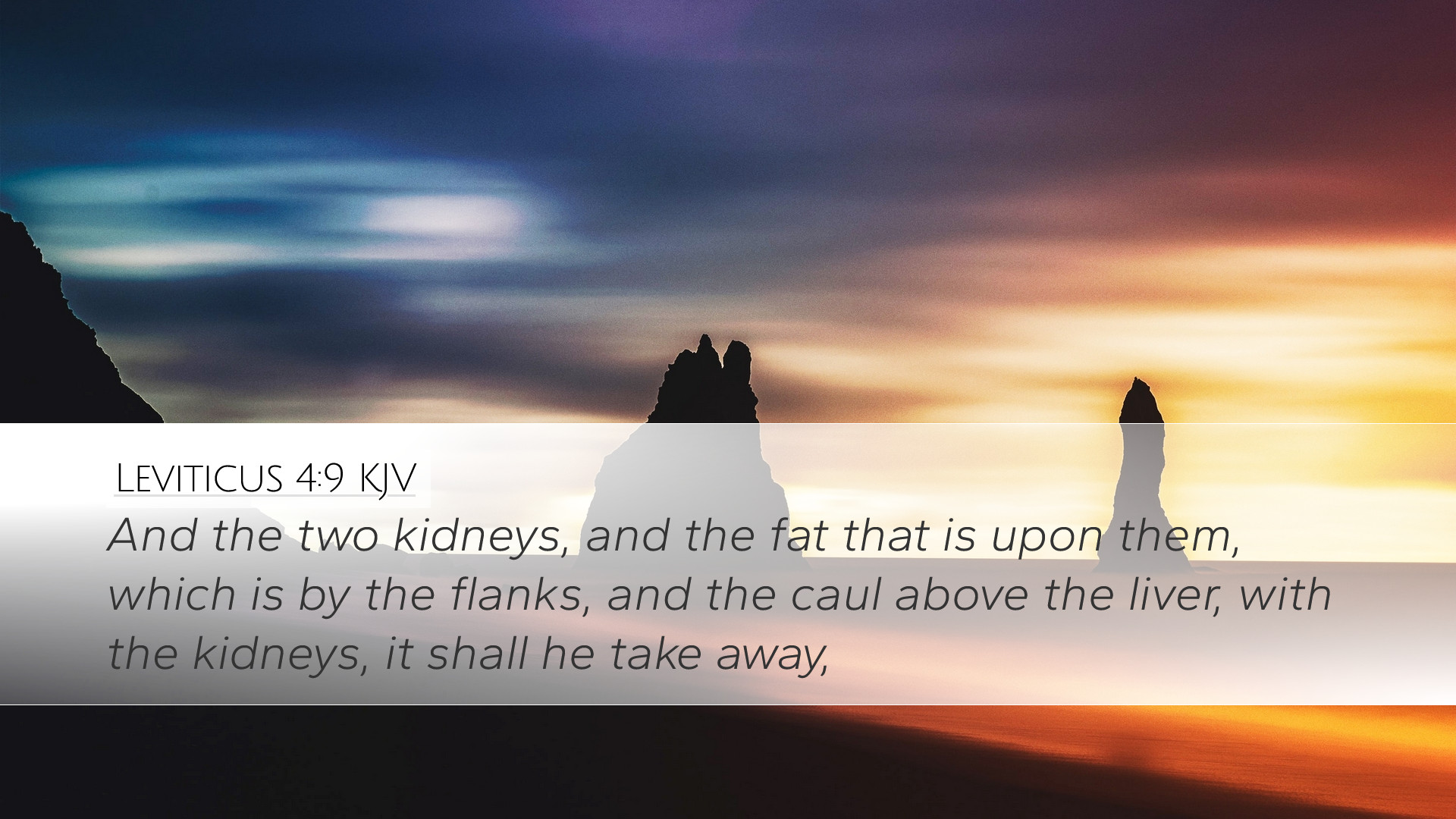Commentary on Leviticus 4:9
Bible Verse: Leviticus 4:9 states, "And the third part of the bullock shall he carry forth without the camp unto a clean place, where the ashes are poured out, and burn him on the wood with fire: where the sin offering is burnt." This verse forms part of the regulations concerning sin offerings for unintentional sins committed by the congregation and various individuals.
Introduction
The book of Leviticus emphasizes the holiness of God and the means through which His people can approach Him. Leviticus 4 provides instructions for sin offerings—sacrifices intended to atone for unintentional sins. The significance of these practices is rich, reflecting profound theological insights that resonate through the entire narrative of Scripture.
Exegesis of Leviticus 4:9
This verse presents key elements of the sin offering process:
- Selection of the Animal: The verse refers to the "third part of the bullock," emphasizing that a specific animal, typically a male bull, is designated for the offering.
- Exile Beyond the Camp: The requirement to carry the animal outside the camp symbolizes the removal of sin from the community. This act demonstrates the seriousness of sin and the need for purification.
- Incineration of the Offering: Burnt offerings outside the camp were entirely consumed, indicating complete atonement for the sins committed.
Theological Insights
Drawing from the works of Matthew Henry, Albert Barnes, and Adam Clarke, we can see various theological principles emerging from Leviticus 4:9.
Matthew Henry's Perspective
Matthew Henry highlights the serious nature of sin and the need for atonement. He notes that the sin offering "points to Christ, the Lamb of God," who bore our sins outside the city for complete redemption. Henry posits that the animals constituted a shadow of the ultimate sacrifice, echoing the necessity of a pure and sufficient atonement.
Albert Barnes' Exegesis
Albert Barnes provides a detailed analysis of the significance of performing the offering outside the camp. He argues that this practice symbolizes being cast away due to sinfulness, echoing the notion that sin separates us from God's presence. Barnes underscores the importance of recognizing sin's gravity and the necessity for effective atonement, as represented by the sacrificial system.
Adam Clarke's Commentary
Adam Clarke emphasizes the fulfillment of these rituals in Christ. He notes that the sin offering ascends to God while simultaneously reiterating God's mercy through the sacrificial process. Clarke elucidates the significance of the ashes from the offering, as they represent the derision and destruction of sin, offering believers hope for restoration.
Historical Context
Understanding the historical context of Leviticus is critical for a comprehensive analysis. Leviticus was written during Israel's journey in the wilderness and aimed to guide God's chosen people in establishing a covenant relationship with Him. The prescriptions for offerings, including the sin offering outlined in Leviticus 4, reflect the holiness of God and the requirement for His people to be set apart, consecrated for service.
Applications for Today
Leviticus 4:9 serves as a vital reminder for pastors, scholars, and theologians today:
- Understanding Sin: It is crucial to address the severity of sin within the lives of individuals and within the Church. The gravity with which God treats sin should inform preaching and teaching today.
- Call to Repentance: The necessity of the sin offering illustrates the call to repentance and the healing that can come through confession and absolution.
- Christ as the Fulfillment: Believers are encouraged to understand Jesus Christ as the ultimate fulfillment of these sacrificial systems, recognizing that through His death, He bore our sins outside the camp, granting us access to God.
Conclusion
In conclusion, Leviticus 4:9 captures a rich theological tapestry that conveys vital truths about sin, atonement, and the character of God. Drawing on the insights of revered commentators, we appreciate the sacrificial system's role in demonstrating the nature of sin and God’s provision for reconciliation through Christ. The echoes of Leviticus continue to resonate through the Scriptures, calling believers to holiness and rootedness in the grace that stemmed from Christ’s ultimate sacrifice.


